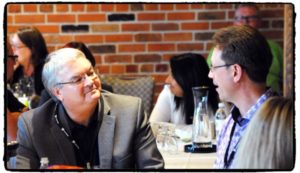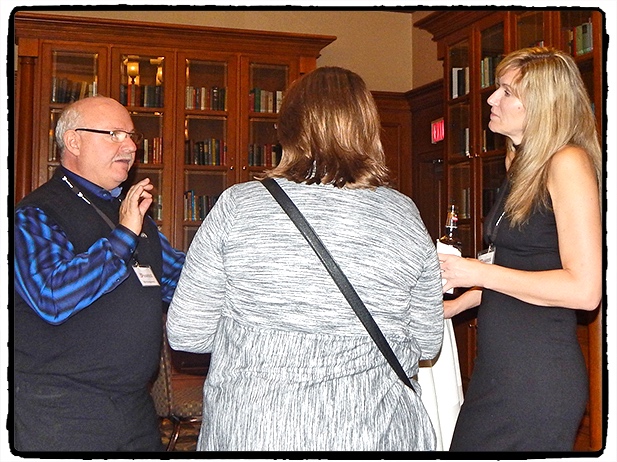“The age of face-to-face conversation is pretty much over”. This bold message greeted me in my inbox earlier this month. The bankingtech.com article described how “connected” a society we have become. The total number of internet users by the end of 2021 is forecast to hit 4.6 billion across the globe (58% of the global population) with mobile data reaching 20% of that total. And as technology becomes more affordable, available, and pervasive, more people are substituting face-to-face conversations with hurling electronic missives at one another.
But is there are price to be paid in the name of time-saving efficiency?
Back in 1999, psychiatrist Edward Hallowell warned that society was in danger of losing what he described as “the human moment” at work. He described the human moment as “an authentic psychological encounter that can happen only when two people share the same physical space.” In its simplest terms, the human moment refers to any live, human interaction.
In contrast are virtual or electronic moments in which the people involved are not physically (and many times psychologically) present. Beyond being in the same physical space, the human moment involves paying focused attention to the conversation you are engaged in.
The consequences of lacking human moments for individuals are broad ranging. Dr. Hallowell describes a number of impacts from anxiety to oversensitivity to self-doubt, all resulting in individuals underperforming and generally suffering unhappiness.
Engaging in human moments on the other hand, has a wide range of personal benefits: increased trust, reduction in stress, and an increase in performance and creativity.
It wouldn’t be realistic to disavow all technology related communications and insist on in-person communications exclusively. Electronic communications facilitate the evolution of a knowledge sharing economy, connect regions of the globe previously isolated, and allow connectivity to explore ideas with wider communities.
Nevertheless, sometimes you need a human moment to solve a problem or make the most of a given opportunity. A human moment conveys vastly more information than an electronic moment possibly can. Body language, tone of voice, facial expressions, timing of what is said, and other powerful non-verbal communication come across only in person.

Do we truly need human moments? Dr. Hallowell describes the benefits as follows: “The positive effects of a human moment can last long after the people involved have said goodbye and walked away. But like exercise, which also has enduring effects, the benefits of a human moment do not last indefinitely. A ten-mile run on Monday is wonderful—but only if you also swim on Wednesday and play tennis on Saturday. In other words, you must engage in human moments on a regular basis for them to have a meaningful impact on your life.”
Are they magical gifts that appear unexpectedly, or can we facilitate human moments? It can start with putting down the phone the next time you have a conversation with a co-worker and focusing your attention on building that human moment. At the 3P Exchange Leadership Symposium, we have designed the event to maximize human moments with 2 rich days of in-person conversations and experiences. The age of stimulating and engaging face-to-face conversations is definitely not over!
Join a community of influencers and leaders – recognized and emerging – on a journey of personal and professional development. Discover, share, and reaffirm the value that leaders and influencers create in their organizations. Explore new tools and insights you can use to impact outcomes, with or without control of the agenda. Visit www.3pexchange.com to find out more about speakers and events at the 3P Exchange Leadership Symposium including information on registering and booking your accommodations at the Pillar and Post Inn, Niagara-on-the-Lake, ON. October 17 & 18, 2017. We are looking forward to seeing you there!

